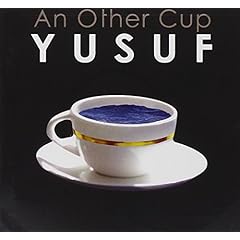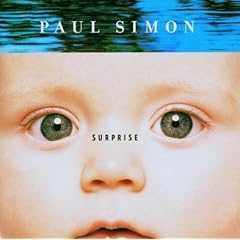Punk Rock Countdown: No. 4
"Death or Glory," by the Clash
Joe Strummer, in what may be the greatest opening lines of any song ever written, proclaims matter-of-factly:Now every cheap hood makes a bargain with the world
an' ends up making payments on a sofa or a girl
Thus begins the two prevailing themes of "Death or Glory." On one level, this is a song about two roads diverging -- one leading to death, one to glory. It is the story of making choices -- specifically, about choices to achieve the glory of punk rock: that is, "making it" without selling out. The other theme is about selling out.
With this song, on the Clash's 1979 masterpiece London Calling, the Clash portray the decline of punk's promise in a less-than-flattering light. Idealists turned cynics, they sing this anthem to cheap hoods everywhere. This one's for the punk everyman-turned-regular joe, the Willie Lomans who traded in their safety pins and leather for a steady job.
The everyman of "Death or Glory" is making his payments -- on the sofa, the girl and now the kids. All that's left of his glory days are the memories, and the "love and hate tattooed across the knuckles of his hands." His anger has turned inward, and in his frustration, he takes it out on his children. "Hands that slap his kids around, 'cuz they don't understand how/Death or glory becomes just another story."
Strummer, his whiskey voice strained and tinged with a world-weariness that defines much of London Calling, tells the story he and the Clash would be accused of in later years:Every gimmick hungry yob digging gold from rock 'n' roll
Grabs the mike to tell us he'll die before he's sold
But i believe in this and it's been tested by research
That he who [expletive] nuns will later join the church
This is the ultimate insult -- the ultimate sellout. To join the church -- i.e., conform to a social institution. Our gimmick-hungry yob has just done that.
Besides, youthful rebellion is nothing new. As Strummer explains in the third verse:From every dingy basement on every dingy street
I hear every dragging handclap over every dragging beat
That's just the beat of time -- the beat that must go on
If you been trying for years -- then we already heard your song
The third verse ends the "official" lyrics. But the song continues with a subversive, almost whispered "fight song." "We're gonna fight, to you lose," Strummer sings in a martial cadence. "We're gonna raise hell." His voice rises, like the phoenix from ashes. Surely, the fire of rebellion lives on in our cheap hood's heart, even if only a flicker. But can that flicker be fanned into a flame again?
Or is death or glory, indeed, just another story? Just another theme for a composition? The story of the youthful rebel who compromises his values for the security and responsibilities of life -- just another story.
:: Andrew 09:05 + ::
...
bloggedy blog
bloggedy blog recommends
bloggedy pod (my podcast page)
Independent hotels
in Missouri
eMusic's Power Charts: The Most Interactive Music Charts Online.
In rotation
What I've been listening to lately. Click album cover or hyperlink to hear track samples and learn more.
 Rickie Lee Jones, Sermon on Exposition Boulevard
Rickie Lee Jones, Sermon on Exposition Boulevard
 Patty Griffin, Children Running Through
Patty Griffin, Children Running Through
 Of Montreal, Hissing Fauna, Are You the Destroyer?
Of Montreal, Hissing Fauna, Are You the Destroyer?
 Field Music, Tones of Town
Field Music, Tones of Town
 De Bossen, The Girl Collection
De Bossen, The Girl Collection
 Cold War Kids, Robbers & Cowards
Cold War Kids, Robbers & Cowards

Frida Hyvonen, Until Death Comes

Tratore Basics Vol. 2, Novo Rock Brazil
 Yusuf: An Other Cup
Yusuf: An Other Cup
 The Beatles: Love
The Beatles: Love

The French Kicks: Two Thousand

The Blow: Paper Television

Freedom Haters Unite! A Bloodshot Records Sampler

Swan Lake: Beast Moans

Prototypes: Prototypes

Scanners: Violence Is Golden

Voxtrot: Mothers, Sisters, Daughters & Wives

Voxtrot: Your Biggest Fan

Macon Greyson: Translate

The Evens: Get Evens

Veruca Salt: Veruca Salt IV
 Bob Dylan: Modern Times
Bob Dylan: Modern Times

Pink Tuscadero: Look Your Best

Leigh Nash: Blue on Blue

Yo La Tengo: I Am Not Afraid of You and I Will Beat Your Ass

The Hold Steady: Boys and Girls in America

Bobby Bare Jr.: The Longest Meow"

The Be Good Tanyas: Hello Love

The Lemonheads: The Lemonheads

Ben Kweller: Ben Kweller

The Pipettes: We Are the Pipettes
 Paul Simon: Surprise
Paul Simon: Surprise

Exene Cervenka and the Original Sinners: Sev7en
 Johnny Cash: American V: A Hundred Highways
Johnny Cash: American V: A Hundred Highways

The John Doe Thing: For the Best of Us

The Fondas: Runaway Bombshell

Buzzcocks: Flat Pack Philosophy

Asobi Seksu: Citrus

Tapes 'n Tapes: The Loon

Various Artists: 2006 Pitchfork Music Festival Sampler (24 free tracks)

The Futureheads: News and Tributes

The Bottle Rockets: Zoysia

Camera Obscura: Let's Get Out of This Country

Art Brut: Bang Bang Rock & Roll

Drive By Truckers: A Blessing and a Curse

The Raconteurs: Broken Boy Soldiers

Belle and Sebastian: The Life Pursuit

Cat Power: The Greatest
bloggedy tags
from our sponsors
for your viewing pleasure
24x7
rocketboom
the Richard Show



 Simon Dawes,
Simon Dawes,